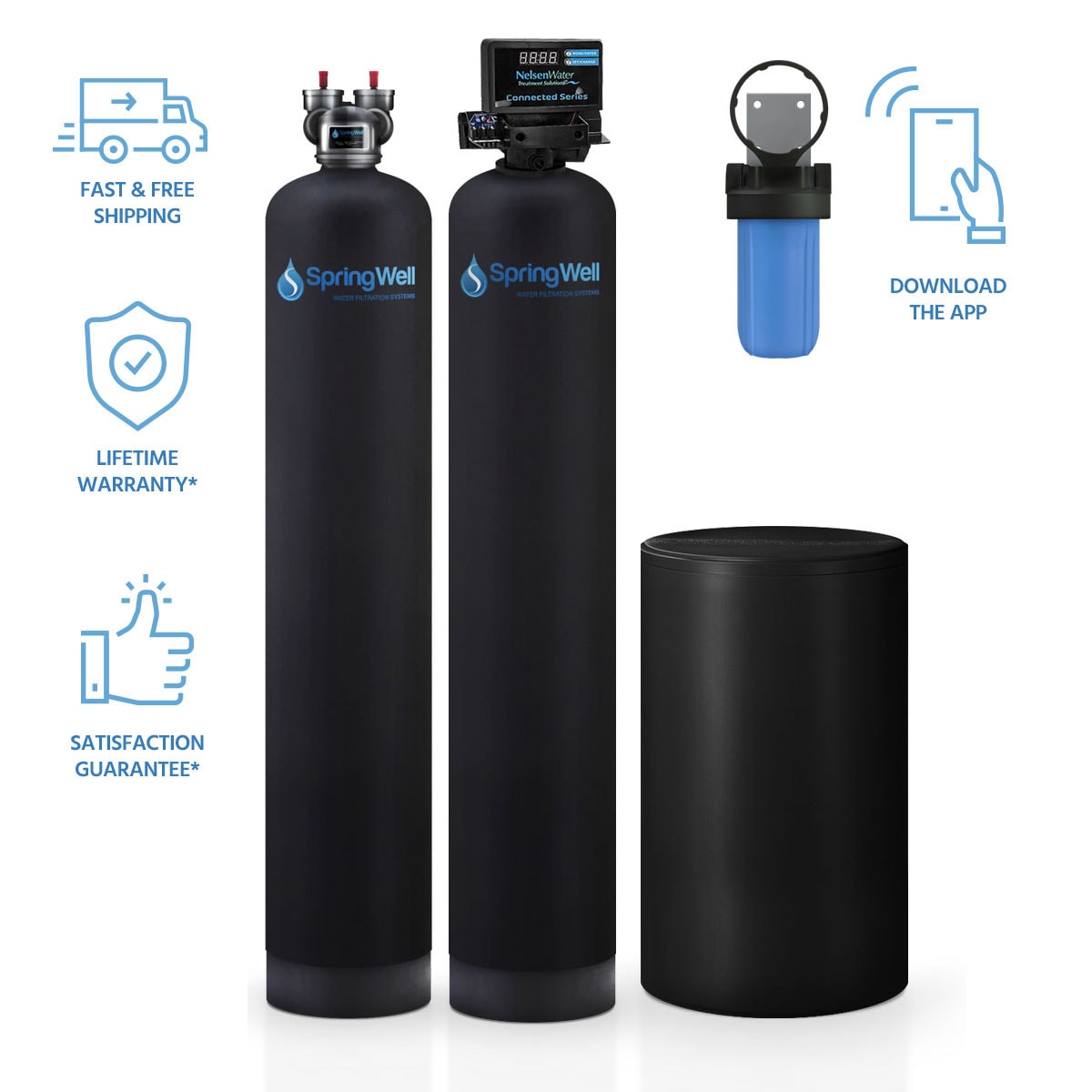Not known Facts About Best Water Treatment System For Well Water
Table of ContentsUnknown Facts About Test Your WaterHard Water Filter System Can Be Fun For EveryoneAll about Full House Water Filter9 Easy Facts About Test Your Water Described
Listening to what the customer needs to state about their troubles as well as water high quality concerns is really vital to ensure that no real or possible problems are overlooked. Exact evaluation of the water aesthetic appeals integrated with a full water analysis and hydraulic features of the water source will certainly make sure proficient therapy choices might be offered to the client (best water treatment system for well water).Water that has a negative smell or poor taste can be undesirable to see, allow alone drink. Culligan water filtration as well as filtration items can offer you cleaner water throughout your entire home.
Prior to making it to your glass, your water is drawn away from a natural source, streaming via the Earth as well as right into a treatment center where it is refined prior to being dispersed to your residence. Along its trip, your water can take in dust, chemicals, and various other impurities that lead to a gloomy look, bad preference, and undesirable smell.
Water filtration operates in either ways physical filtration and chemical filtration. With physical filtering, water is stressed, often through a gauze-like membrane, to remove larger fragments. With chemical purification, water is treated with copyrighted wise modern technology to eliminate impurities. Various sorts of filtering are used to eliminate different kinds of impurities.
The Best Strategy To Use For Hard Water Filter System
Lake Michigan, by quantity, is the second largest Great Lake as well as the just one located totally within the United States. It works as a resource of drinking water, as a location for swimming and also fishing, and also as a beautiful heaven. Water from Lake Michigan enters the consumption baby crib at depths of 20 to 30 feet.
Our pumping stations distribute pressurized water throughout our city. We use a number of chemicals in the purification as well as therapy of water: Chlorine: to decontaminate the water.
Industrial water therapy systems meet a range of purification as well as splitting up demands. They can vary from reasonably compact and simple to facility, multiunit procedures that offer a variety of applications. If you're new to water therapy, you might be asking Considering that commercial water treatment is a complicated household of innovations as well as systems, this post will certainly concentrate on offering a high-level overview of the technologies that are usually utilized as well as summarize how they work, helping you to much better recognize the very best feasible services for your facility.

That said, each system will certainly vary depending on the center's requirements as well as most of the modern technologies that comprise these systems can be comparable. As a whole, some of the most-needed commercial water therapy systems typically consist of: Raw water therapy systems Boiler feed water treatment systems Cooling down tower water therapy systems Wastewater treatment systems The technologies picked and also in what order they show up in each water therapy system will certainly differ depending upon the pollutants that require to be gotten rid of, however it is feasible to tighten down what you might see in these four typical industrial treatment systems.
Top Guidelines Of Whole House Water Filter System For Well Water
The stream is filtered via a gravity sand filter to catch any type of little particles that did not settle out. If organic contamination and/or water check my reference potability is a worry, the water might after that be decontaminated to eliminate any virus. Sanitation might be accomplished through the application of chemical anti-bacterials (e.

Exactly how they function An efficient central heating boiler feed water therapy system works by both getting rid of hazardous impurities before getting in the central heating boiler in addition to managing the acidity and conductivity of the water. While treatment trains differ, a regular system will certainly include main treatment and also perhaps polishing depending upon the boiler pressure, vapor usage, and chemistry of the central heating boiler feed and also makeup water.
RO and NF are both kinds of membrane layer purification, indicating that they employ a semi-permeable membrane to record any type of contaminants too huge to fit with their pores, while enabling water particles to stream through. For large quantities of water or high stress central heating boilers, deionizers might be utilized rather than membrane read here filtration.
The Facts About Full House Water Filter Uncovered
Following all therapy steps, the central heating boiler feed water is piped to the central heating boiler, where it is heated up to form heavy steam. The condensate can then official source be incorporated with cured makeup water, and also the cycle starts once again (whole house water filter system for well water). These steps represent common central heating boiler feed water system trains, it is important to comprehend that that will dictate the modern technologies required.
Next, the stream will usually undertake some kind of chemical treatment, which can include the application of deterioration inhibitors to neutralize level of acidity; algaecides or biocides to decrease development of organic contaminants; and/or scale inhibitors to prevent contaminants from forming scale on pipelines as well as other parts. Numerous cooling towers are made to recirculate water complying with usage.
Relying on the characterization of the drainage, information can be a collection of reaction containers with chemical addition, coagulation, flocculation, sedimentation, complied with by filtration. These actions are usually necessary for elimination of any kind of fine particulates and/or by-products, several of which can be recuperated if they are of worth (such as silver or various other materials).